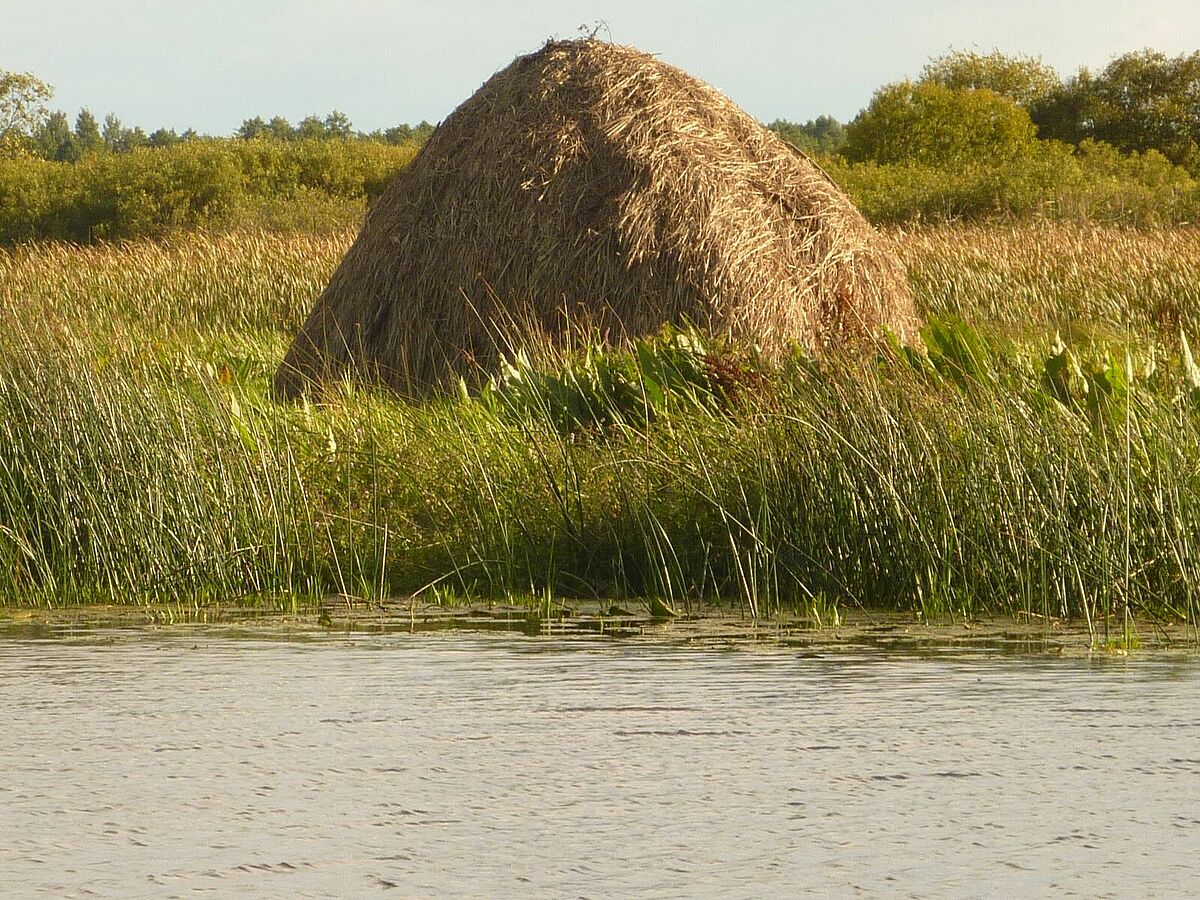Clearance
Circular Economy Approach to River pollution by Agricultural Nutrients with use of Carbon-storing Ecosystems
From 2017 until 2020 researchers from Warszawa (project coordination), Aarhus, Berlin, Greifswald and Nijmegen will explore the potential of wetland buffer zones for a circular economy, taking into account the role of these zones for water purification, nature conservation, nutrient reuse and agriculture. The focus will be on three river systems in Denmark, Germany and Poland, including three regional stakeholder workshops. CLEARANCE provides an opportunity to further explore the Greifswald approach to paludiculture in the context of wetland buffer zones, as well as research on ethics and innovation for a more sustainable development.
GETIDOS contributions in Clearance
In work package 5: The concept of a circular economy also raises evaluative issues; here especially in relation to water valuation. We will contribute to the project a discussion of the various values of water (intrinsic, instrumental and relational) so as to systematically frames the evaluative aspect of the uses of wetland buffer zones. As such evaluations and the path towards a circular economy offers not only innovation possibility (such as paludiculture), but also creates conflicts of interests and values, we will draw on the prior experience of sustainability-oriented innovators in the water sector to discuss barriers and opportunities.
Coordination work package 6: We will conduct an extended-social-grid-model-analysis. This approach has been developed for innovation process with a socio-ecological objective. Using qualitative research on social networks, institutions and cognitive frames, we aim to provide insights into the change process as an ecological and social one, including barriers and opportunities for wetland buffer zones with paludiculture. The analysis will be complemented by a survey on economic instruments for wetland buffer zones at the European and national levels, conducted by our partner Bundeskontaktstelle Wasser, as well as three regional stakeholder workshops.
Integration of research and teaching at our institute:
Kristin Eisele, Paludikultur und der Eigenwert der Natur, Bachelor Thesis, July 2019 (Erstbetreuer: Ziegler, Zweitbetreuer: Gorke).
Publications
Ziegler, Rafael (2020): Paludiculture as a critical sustainability innovation mission. Research Policy 49 (5) 103979. Preprint.
Ziegler, Rafael (2020).Assessment study of barriers and opportunities regarding Wetland Bufferz Zones and Wet Agriculture - Clearance Project Report WP 6.3.1. Download.
Ziegler, Rafael and Lechtape, Christina (2020). Paludiculture. Social innovation case for the Social Innovation Academy. Download.
Ziegler, Rafael (2019): Water innovation for a circular economy – the contribution of actors from the grassroots. Water Alternatives 12(2): 725-738. Download
Ziegler, Rafael (2019): Water Innovation for a circular economy - Clearance Project Report WP 5.4. Download.
Clearance (2018): Brussels declaration - Restoring riparian wetlands for clean water & agriculture – policy recommendations for the European Water Framework Directive & Common Agricultural Policy, September 2018. Download as PDF; download as Flyer:.
Introductory literature for work packages 5 and 6:
Nicholls, Alex und Rafael Ziegler (2014): An Extended Social Grid model for the Study of Marginalization Processes and Social Innovation. CRESSI Working Paper Nr. 2 online.
Ziegler, Rafael, and Lilin Kerschbaumer. 2016. “Wasserethik.” In Handbuch Umweltethik, edited by Konrad Ott, Jan Dierks, and Lieske Voget-Kleschin, 256–61. Stuttgart: J.B. Metzler (Pre-Print).
Einführende Literature Paludikultur allgemein:
Wichtmann, Wendelin, Schröder, Christian & Joosten, Hans eds. (2016): Paludiculture - productiveuse of wetpeatlands - Climate protection - biodiversity - regional economic benefits. Schweizbart Science Publishers.
In the media
Eckhard Oberdörfer, Greifswald soll Leuchturm der Paludikultur werden, Ostsee-Zeitung, 5.12.2018 Read the article [in German].

Workshops
During the project we organise four stakeholder workshops together with Grüne Liga:
15 March 2019 in Warsaw Invitation and Registration here.
28 November 2019 in Greifswald Invitation and Registration here.
14-15 September 2019 in Aarhus Invitation and Registration here.
12 September in Brussels Invitation and Registration here.

Funding
ERA-NET Cofund WaterWorks2015 Call. This ERA-NET is an integral part of the 2016 Joint Activities developed by the Water Challenges for a Changing World Joint Programme Initiative (Water JPI).

